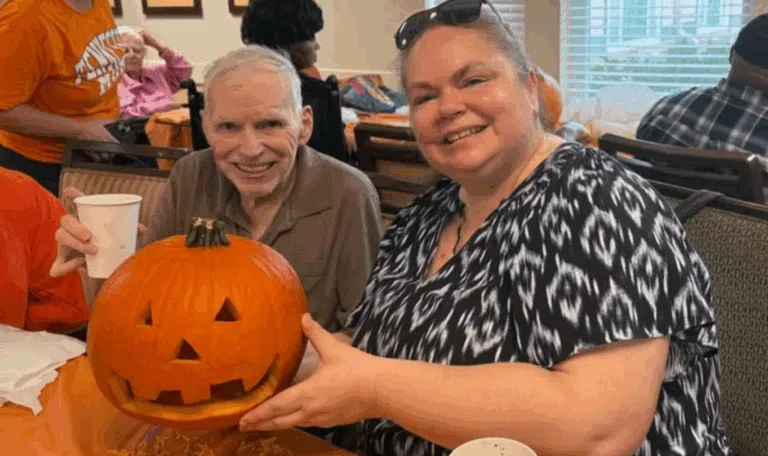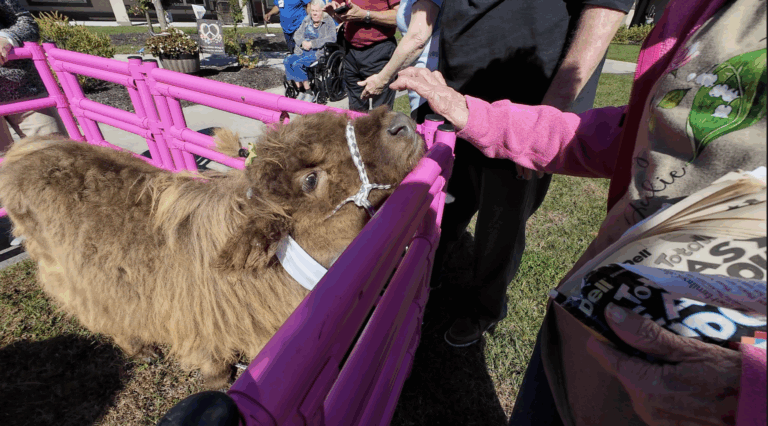When to Move from Assisted Living to Memory Care
Deciding to transition to memory care can be a difficult one for families faced with the progressive cognitive decline of a loved one. It is important to consider several factors when determining the right time to move into a memory care community.
Recognizing when to move from assisted living to memory care is crucial. Early detection of certain conditions that indicate that memory care services might be the appropriate choice for your loved one can lead to better care and improved quality of life.
Memory care communities are specialized residential options designed to deliver person-centered care for residents exhibiting symptoms of Alzheimer’s disease or other types of dementia.
Alzheimer's disease is a neurodegenerative disorder affecting millions of people worldwide. In the United States alone, it is estimated that approximately 6.7 million people are currently living with the condition. However, it is important to note that Alzheimer's disease is but one of several forms of dementia that can result in progressive cognitive decline.
In addition to Alzheimer's disease, several other forms of dementia can have devastating effects on individuals and their loved ones. These include the following disorders:
- Vascular dementia: Vascular dementia occurs when the brain's blood vessels become damaged, reducing blood flow to the brain.
- Lewy body dementia: Lewy body dementia is caused by the buildup of deposits of a protein called alpha-synuclein in the brain, affecting the brain's ability to regulate mood, movement, and cognition.
- Frontotemporal dementia: This condition primarily affects the brain’s frontal and temporal lobes, causing changes in behavior, language, and decision-making abilities.
Life expectancy for people with dementia can vary significantly. However, the level of care received can slow the disease's progression and the quality of life for individuals affected.
When to Move to Memory Care
While assisted living communities offer limited resources for residents experiencing dementia-related cognitive decline, memory care communities are better equipped to address their changing needs and behaviors.
Signs it might be the right time for memory care include the following:
- Isolation: It may be time for a transition if your loved one feels isolated and disconnected from others in the assisted living community. Memory Care residents accept each other wherever they are in their dementia journey.
- Wandering: If your loved one wanders off or gets lost in the assisted living community, it may be a sign that the environment is no longer suitable. Memory care communities are designed with safety features and specialized staff to allow for safe spaces to walk and provide appropriate supervision.
- Aggression: If your loved one exhibits aggressive behavior toward themselves or other residents in the assisted living community, it may be a sign of a change in their needs or time for a more supportive environment. Memory care communities have trained staff that understand that behavioral expressions are a way of communication and security measures to provide a safe environment for residents.
- Changing Personal Care Needs: If your loved one has difficulty managing their personal care or requires more assistance, it may indicate a decline in their cognitive abilities.
Finding the Right Memory Care Community
When a loved one is diagnosed with dementia-related memory loss, finding a memory care community that meets their unique needs can be challenging. It is important to consider various factors to ensure your loved one receives the best care and support. Here are some tips to help you find the right memory care community for your loved one:
Conduct Research
Start by gathering information on local memory care communities and their offerings. Visit their websites, read reviews, and contact them to ask questions. Consider location, amenities, staff qualifications, and specialized programs.
You should also familiarize yourself with state laws and regulations surrounding assisted living and memory care communities. If your state’s laws don’t cover specific areas of care that are important to you and your loved one, ask the memory care community how their policies address your concerns.
Evaluate Comfort and Safety
When choosing a memory care community, safety should be a top priority. Look for a community that adheres to strict safety standards and has secure facilities to prevent wandering. Additionally, check the quality of accommodations and common areas to ensure comfort.
Visit and Tour the Communities
Visit the memory care community in person. Spending time in the community will give you a better sense of the environment, staff interaction, and overall quality of care. Take note of cleanliness, resident engagement, and the level of activity provided.
Assess Staff Training and Expertise
The staff members at the memory care community play a vital role in your loved one's well-being. Look for a community with trained and qualified caregivers knowledgeable about dementia-related memory loss. Ask about staff turnover rates, training protocols, and the availability of specialized programs.
Consider Individualized Care Plans
Every individual with dementia-related memory loss has unique care needs. Ensure the memory care community offers personalized care plans tailored to your loved one's specific challenges and strengths. Ask about the availability of specialized programs, such as physical therapy, occupational therapy, or speech therapy.
Ask about Activities and Entertainment
Memory care communities should provide residents with a diverse assortment of engaging activities and entertainment options. Consider whether there are opportunities for social engagement, cognitive exercises, and physical activities that cater to your loved one's interests and abilities.
Seek Referrals
Personal recommendations can be beneficial when choosing a memory care community. Ask healthcare professionals, colleagues, and friends for their experiences and insights. You can also consult with support groups or dementia organizations for recommendations.
Visit the Community Regularly
Once you've selected a memory care community, it is essential to visit regularly. Observe the interactions of residents and staff to gauge their comfort level and satisfaction. Regular visits will help ensure that the community is still the best fit for your loved one's needs.
Protect, Engage & Love
If you are considering transitioning a loved one into a memory care community, the caring professionals at Anthem Memory Care are here to help.
Our community offers personalized care, expertise, and a supportive atmosphere, ensuring a smooth transition and the best care for your loved one. Contact us today to learn more about how Anthem Memory Care can make a difference in your loved one's journey.



